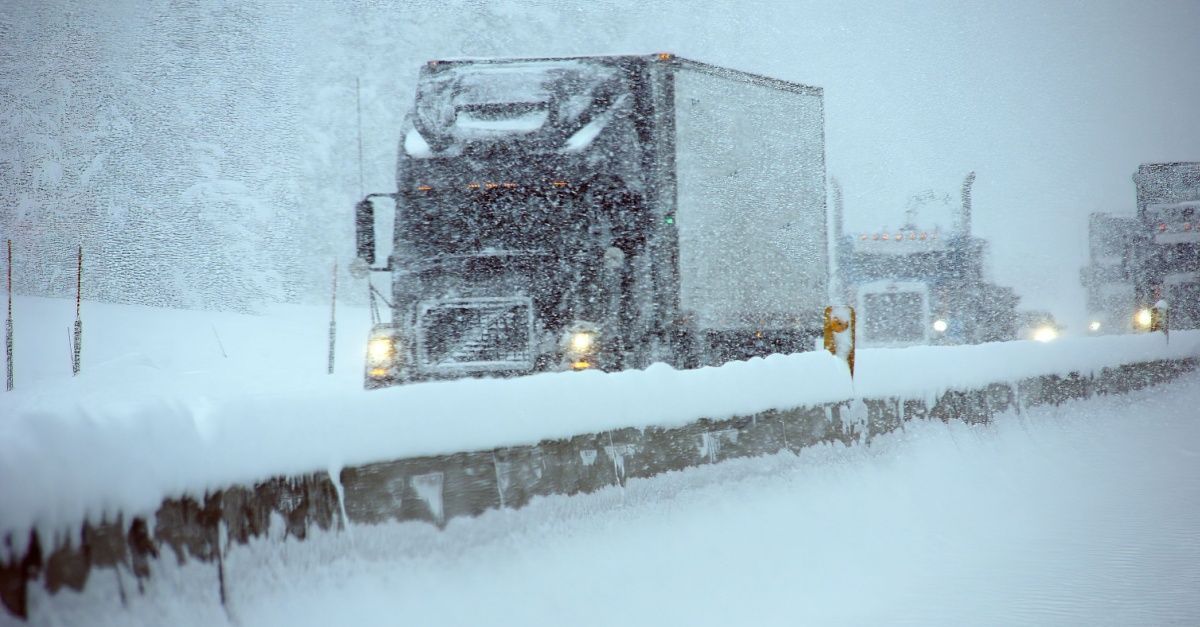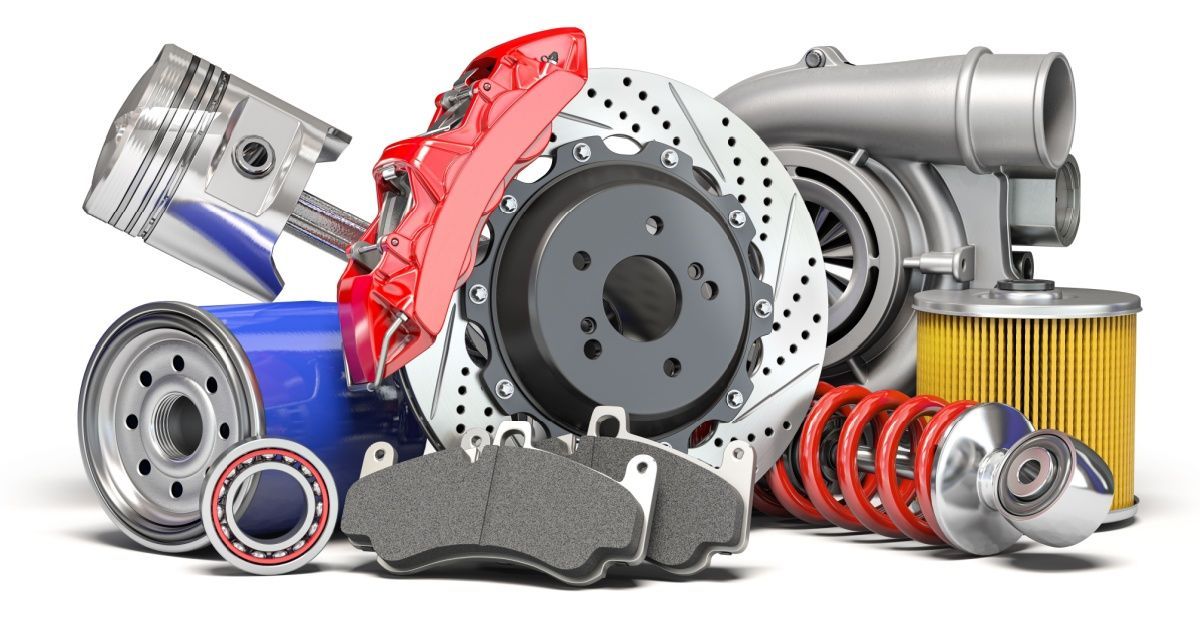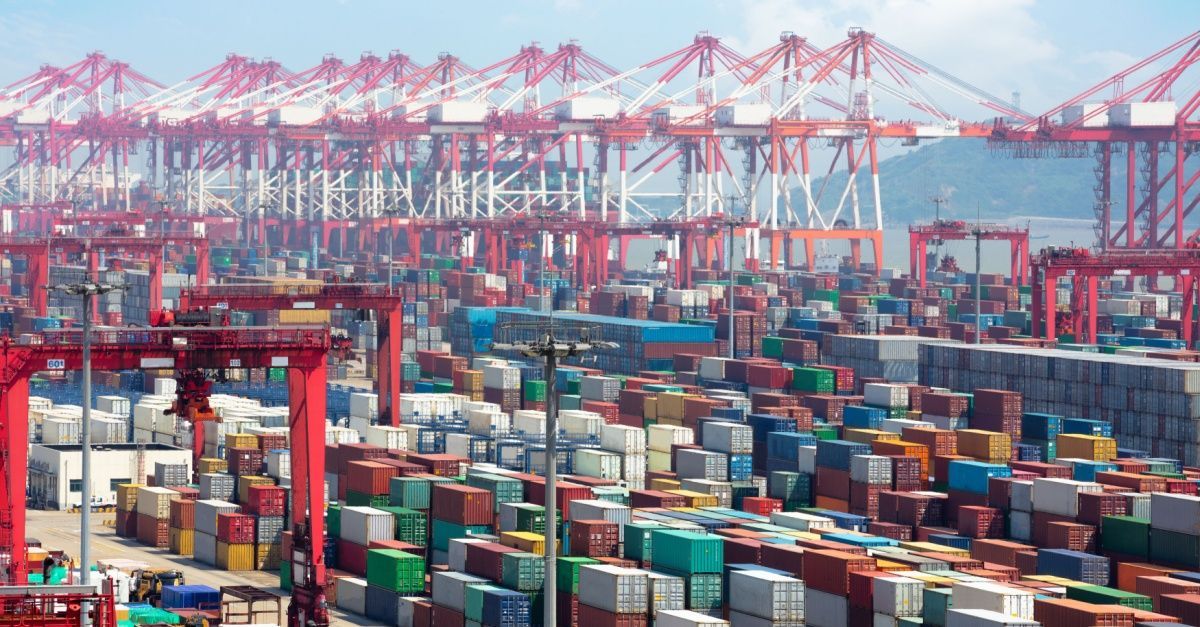This Freight Broker's Attention to Detail on Reefer, Produce, & Frozen Freight Is Perfect for Dry Van
Blog Post CTA
Finding the right freight broker for your business can be tricky. Are you shipping refrigerated freight? Are you moving non-perishable goods? Is your cargo high-value? These questions are only a few things to consider, but problems and disruptions may occur even with the best-laid plans. Transportation failures could lead to product losses, especially in the cold chain where perishables find their way from farm to table and beyond. With that in mind, finding a freight broker for each might seem ideal, but there’s a solution hidden in plain sight, and it comes from the risk of spoilage and what shippers can do to stop it.
That’s why it’s important to have an expert in your corner that can handle both sides of the perishable versus non-perishable shipping conundrum. This blog will take a closer look at that fact and why an expert in perishable transport, including produce, frozen foods, and reefer, is your best bet for shipping non-perishables by dry van too.
Why Reefer & Perishable Freight Need Detail Oriented Brokers
Food spoilage is a significant problem. According to Quality Assurance magazine, a 2015 report found that approximately 61% of all food is wasted. Of that, 21% is due to spoilage. However, these statistics overshadow another dark truth. As reported by Global Agriculture, a 2019 study found, “around 14% of the world’s food is lost after harvesting and before reaching the retail level, including through on-farm activities, storage and transportation. However, the food losses vary considerably from one region to another within the same commodity groups and supply chain stages. At the regional level, estimates range from 5-6% in Australia and New Zealand to 20-21% in Central and Southern Asia.”
Such waste is most common in shipping produce and within the refrigerated and frozen shipping modes. However, spoilage may also affect dry van foods, and everyone is well aware that not only foods can spoil. Pharmaceuticals, pet treats, canned goods, and virtually anything bought in the store for consumption or ingestion have a certain shelf-life. The same is true of e-commerce purchases too, and there are many goods relating to health, beauty, and accessories , think shampoos and beauty products, subject to spoilage.
Still, these items may become unsafe when transport failures or damages occur. Now, why is that important when selecting a freight broker?
The answer is simple. Freight brokers work across many products, including perishables and non-perishable goods, such as clothing or office supplies. Regardless, all freight is worth a monetary value, and delays amount to lost profitability somewhere along the chain, even if that occurs in the form of return after an initial purchase by a consumer.
Challenges of Reefer & Perishable Freight
Part of the spoilage arising in the transportation industry comes from several top challenges, including:
- Driver mistakes. Drivers will inherently make mistakes, such as missing a turn or exit. Unfortunately, these mistakes all take away from drive-time hours and may result in overnight delays.
- Loss of temperature. A loss of temperature occurs when the temperature of the frozen or refrigerated goods rises above a given threshold, usually near 37 degrees Fahrenheit for refrigerated goods and 20 degrees Fahrenheit for frozen items. Unfortunately, tracking these rises comes down to accounting for the delta between the item and the surrounding temperature in its packaging.
- Equipment failure. Remember, the reefer transport trailers by design keep goods at a pre-cooled temperature, not cool items that are not at a proper temperature. This makes the system more likely to lose temperature controls if equipment failures occur in the slightest.
- Compliance regulations. Since pharmaceuticals and foods, all falling under the direction of the FDA, are most likely to require cold chain transport, compliance regulations are strict. Failure to adhere to such regulations, including tracking temperature in transit, may lead to delivery refusal and possible chargebacks.
- Lack of expertise in shipping perishables. Not understanding the nuances of cold transport, such as how reefer trailers work, may also lead to additional costs and spoilage.
- The trucker shortage. All aspects of logistics face the uncertainty of the driver shortage. Combined with trouble forecasting demands, which only continue climbing in today’s market, it will lead to additional risks for spoilage.
Even with these challenges of refrigerated or frozen trucking in mind, it’s not the full scope of the picture in terms of risk and problems encountered, especially in the world of dry van.
Challenges of Dry Van Freight
Dry van freight sounds pretty simple. It’s a dry cargo trailer for moving goods. However, dry van freight may very well be subject to temperature restrictions, provided it’s properly packaged. For instance, cold-chain products may be shipped in insulated packaging with dry ice to maintain correct temperature requirements. However, these issues are usually resolved by considering the unique distance and travel requirements for such shipments. Still, there are a few challenges worth noting in dry van transport, including:
- The driver shortage. Much like the challenge of the same name in refrigerated freight, a lack of drivers may lead to the inability to pick up and deliver goods on time, causing problems for temperature-sensitive goods and those that require extra care in transport, such as live animals.
- Limited equipment. Similar to lacking drivers, a lack of available equipment may make transporting dry van freight troublesome. Drivers may not have the correct pallet jacks or forklifts for unloading goods, and such failures may fall to the responsibility of the shipper, not necessarily the dock where the goods are picked up or delivered.
- Poor network diversity. Limited network diversity is yet another issue. Dry van freight is usually easier to cover due to its relatively minimal transport requirements. However, limited network diversity amounts to a more significant reduction in available drivers and equipment for use.
- Miscommunications lead to mistakes. Poor communication may result in failures to deliver goods on time and in full as well. Such factors are common reasons for consumer returns, and in B2B markets, failures to deliver on time may result in the invocation of money-back service guarantees.
- Trouble forecasting demand and getting good rates. Limited insight into total market conditions will result in problems forecasting demand. As a result, shippers may not know what each shipment’s transportation is worth, resulting in either overspending in low-volatile markets where capacity is ample or paying outrageous prices in high-volatile markets.
The challenges all amount to one outcome—difficulty managing the inbound and outbound flow of freight. These challenges may appear similar to those in shipping perishables or refrigerated freight. Even if capacity seems like it’s widely available, there’s no real guarantee that your company is paying the right price for the market. That’s where data becomes more important, but why?
Consider this. Dry van is a common form of transport in logistics, due to its relative simplicity compared to the risks inherent in shipping perishables. Still, dry van freight is integral to the modern world. That’s why it’s not simply enough to find ample capacity and track cargo based on some archaic systems. Instead, it all comes down to having a partner that can put the right attention to detail in dry van, and shippers can achieve that very goal by looking to experts in reefer.
Why Dry Van Freight Processes Benefit From Attention to Detail
Dry van is not simply a process that can be left to the fringe of data-tracking and planning. Consider the realities of reefer freight, including:
- The need for real-time shipment visibility.
- The absolute disruption risks deriving from all areas of logistics, including e-commerce.
- A continued push for more regulations is coming from lawmakers.
- Uncertainty regarding rates based on market dynamics.
- Improved forecasting and overall planning.
Here’s the kicker. These realities are absolute in tracking perishables and delivering goods on time, but why shouldn’t they be critical to dry van freight? The answer to that question means that if reefer goods are the expertise of your freight broker partnerships, those same best practices naturally carry over into dry van planning and execution.
That’s the real value of a refrigerated freight expert who can transform your dry van needs into a paragon of detail-oriented, best-in-class operations.
Get the Most Value in Logistics From Your Freight Broker With the Right Partnership
Working with a freight broker for refrigerated and frozen freight management yields substantial benefits and helps prevent your products from spoiling. That same value rests in working with such a broker for moving dry van freight too. Experts in the transport of perishable goods recognize that the customer, the whole experience, and lives may be on the line for every item shipped. Even things that most take for granted, like clothing and shoes, are essential to the supply chain.
These items, no matter how insignificant or small, might be all one person has, and somewhere in the supply chain, it was the reliance on timely delivery that brought everything together at the just-right time, at the just-right place, and at the just-right price. That’s why a freight broker’s attention to detail is so important. If you can remember that above all else, your company will reap the greatest reward.
Connect with Entourage Freight Solutions to get started today.









